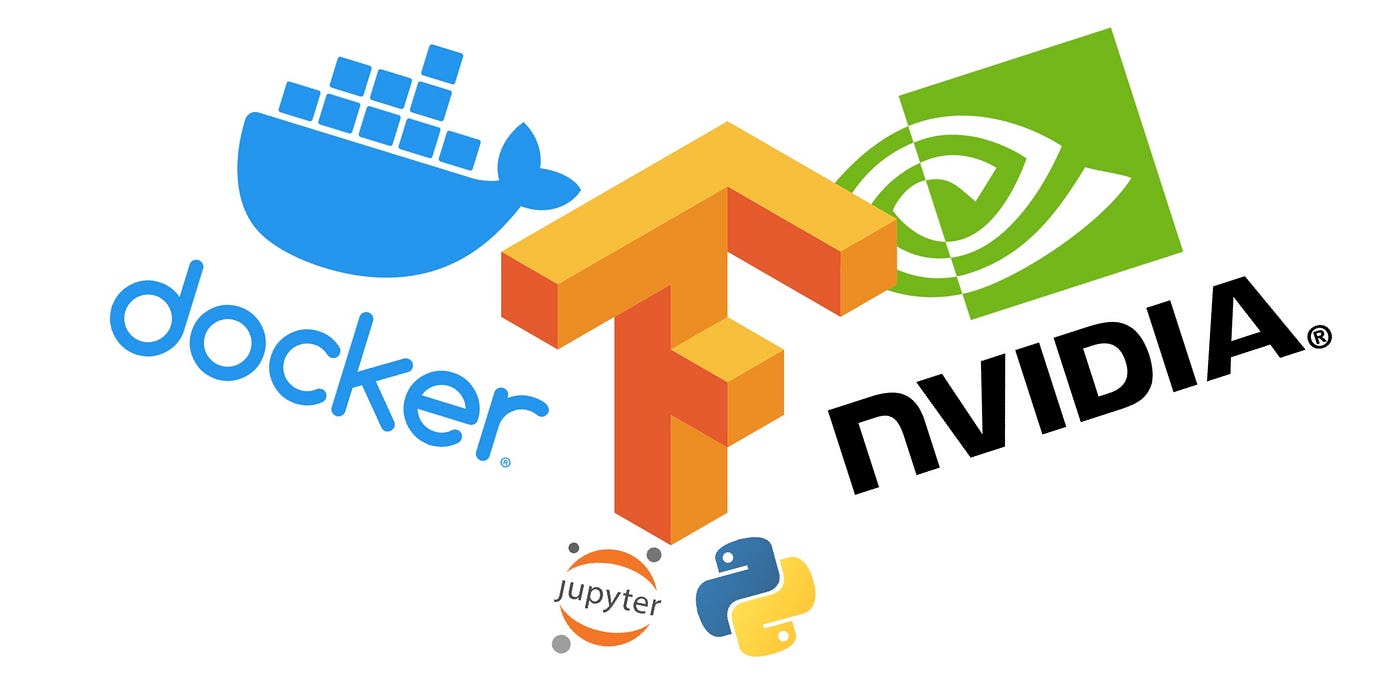Creating a TensorFlow GPU Jupyter Environment with Docker

In the world of machine learning and data science, having a robust and flexible development environment is crucial. This project aims to create a Docker-based environment that combines the power of TensorFlow with GPU support and the convenience of Jupyter Notebook. Let’s dive into the details of this setup and explore its benefits for machine learning practitioners and researchers.
Project Overview
The TensorFlow GPU Jupyter Environment is a Docker-based solution that provides a ready-to-use platform for machine learning development. It leverages NVIDIA CUDA for GPU acceleration, making it ideal for computationally intensive tasks common in deep learning projects.
Key Features
- TensorFlow with GPU support
- Jupyter Notebook for interactive development
- Pre-installed data science libraries (NumPy, Pandas, Matplotlib, Scikit-learn)
- NVIDIA CUDA support for GPU acceleration
- Easy-to-use Docker container
Technology Stack
The project utilizes a carefully selected stack of technologies:
- Docker: For containerization and easy deployment
- NVIDIA CUDA: For GPU acceleration
- TensorFlow: The core machine learning framework
- Jupyter Notebook: For interactive coding and visualization
- Conda: For managing Python environments and packages
Development Highlights
Creating this environment involved several interesting challenges and solutions:
CUDA Integration
One of the most critical aspects of this project was integrating NVIDIA CUDA support. This allows TensorFlow to leverage GPU acceleration, significantly speeding up machine learning tasks. The Dockerfile starts with an NVIDIA CUDA base image:
FROM nvidia/cuda:11.8.0-cudnn8-devel-ubuntu22.04Conda Environment Setup
To manage Python packages efficiently, we used Conda to create a dedicated environment for TensorFlow and other libraries. This approach ensures compatibility and easy management of dependencies:
RUN conda create -n tf_gpu python=3.9 -y
RUN conda run -n tf_gpu conda install -y tensorflow-gpu && conda clean -a -y
# Additional package installations...Jupyter Notebook Configuration
We configured Jupyter Notebook to run without a browser and accept connections from any IP, making it easily accessible when running in a container:
RUN conda run -n tf_gpu jupyter notebook --generate-config && \
echo "c.NotebookApp.ip = '0.0.0.0'" >> /root/.jupyter/jupyter_notebook_config.py && \
echo "c.NotebookApp.open_browser = False" >> /root/.jupyter/jupyter_notebook_config.pyUsage Instructions
For those who prefer to build the image themselves, the process is equally simple:
-
Build the Docker image:
docker build -t tensorflow-gpu-jupyter . -
Run the container:
docker run --gpus all -p 8888:8888 -v $(pwd):/workspace tensorflow-gpu-jupyter -
Access Jupyter Notebook by copying the URL from the Docker logs.
Learning Outcomes
Developing this Docker environment provided valuable insights into:
- Containerizing complex machine learning environments
- Integrating GPU support in Docker containers
- Configuring Jupyter Notebook for remote access
- Managing Python environments and packages with Conda
Future Improvements
While the current setup is fully functional, there are several areas for potential enhancement:
- Add support for JupyterLab in addition to Jupyter Notebook
- Implement version selection for TensorFlow and CUDA
- Create a docker-compose file for easier management of multiple services
- Add more pre-installed machine learning libraries and tools
Conclusion
This TensorFlow GPU Jupyter Environment demonstrates the power of containerization in creating reproducible and efficient development environments for machine learning. By combining TensorFlow, GPU acceleration, and Jupyter Notebook in a Docker container, we’ve created a flexible and powerful platform that can significantly boost productivity in machine learning projects.
The ease of setup and use makes this environment suitable for both beginners and experienced practitioners, providing a consistent and powerful workspace for exploring the exciting world of machine learning and deep learning.